Research
Principal Investigators

Lisa Barrett

Lisa Barrett
University Distinguished Professor of Psychology
Lisa Feldman Barrett, PhD, is University Distinguished Professor of Psychology and Director of the Interdisciplinary Affective Science Laboratory (IASLab) at Northeastern University (with Dr. Karen Quigley). She also holds research appointments at Harvard Medical School and Massachusetts General Hospital. Her research focuses on the nature of emotion from both psychological and neuroscience perspectives. Dr. Barrett has been called “the most important affective scientist of our time” and “the deepest thinker on <the nature of emotion> since Darwin” and has been honored with election to numerous scientific societies, including the American Academy of Arts and Sciences and the Royal Society of Canada. Dr. Barrett is a prolific scientist, publishing over 200 peer reviewed scientific papers and she has edited five scientific volumes, including the 4th edition of the Handbook of Emotion, published by Guilford Press. Her research has been called “groundbreaking,” “inspirational,” and “transformative,” and has been continuously funded by the US National Institutes of Health and the National Science Foundation for over 20 years. She has received numerous research awards, including a Director’s Pioneer Award from the US National Institutes of Health for transformative research. She has also received awards for her service, including the 2018 Lifetime Mentor Award from the Association for Psychological Science and the Award for Distinguished Service to Psychological Science from the American Psychological Association. In 2019, she will serve as president of the Association for Psychological Science. Dr. Barrett educates the public about emotion and neuroscience, with articles in the New York Times, Popular Science, Nautilus, Cosmo, and Time Magazine (for a full list, see lisafeldmanbarrett.com). Her TED talk, published in January 2018, has been viewed over 2M times. Her research has been discussed in over 200 pieces published on major media outlets, including on NPR, NBC, and Invisibilia, and in The Wall Street Journal, WIRED magazine and Time magazine. Dr. Barrett educates lawyers, judges and other legal actors about emotion, neuroscience and the law as part of her work for the Center for Law, Brain and Behavior, and in 2007, she testified before US Congress in support of basic behavioral research. Her popular science book, How emotions are made: The secret life of the brain, was published by Houghton Mifflin Harcourt in 2017, and was described as “brilliant and original”, “mind blowing”, and “a delight to read.”
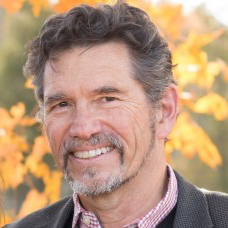
Craig Ferris

Craig Ferris
Professor of Psychology, Bouve College of Health Sciences
Academic research focuses on developmental behavioral neuroscience and disease progression in psychiatric and neurological disorders. Interests include the plasticity of the brain and how early emotional and environmental risk factors alter social and cognitive behaviors. Risk factors include drugs of abuse like cocaine and alcohol, social subjugation in the context of dominant/subordinate relationships, traumatic brain injury and gene mutations. Laboratory uses standard molecular and neurobiological techniques to study the brains of rodents. In addition, ultra-high field magnetic resonance imaging is used as a non-invasive tool for developmental studies in rodents and monkeys enabling one to follow changes in brain structure, chemistry and function in the same animal over the course of its life. The goal of research is to better understand the brain mechanisms contributing to psychiatric and neurological disorders in the hope of improving psychosocial and psychopharmacologic intervention strategies.

Charles Hillman

Charles Hillman
Professor of Psychology, Bouve College of Health Sciences
Dr. Charles Hillman received his doctorate from the University of Maryland in 2000, and then began his career at the University of Illinois, where he was a Professor in the Department of Kinesiology and Community Health for 16 years. He also held appointments in five other units including the Department of Psychology, the Division of Neuroscience, and was an affiliate of the Beckman Institute for Advanced Science & Technology. He continued his career at Northeastern University in Boston, Massachusetts, where he currently holds appointments in the Department of Psychology and the Department of Physical Therapy, Movement, & Rehabilitation Sciences. He is the Associate Director in the Center for Cognitive and Brain Health, which has the mission of understanding the role of lifestyle behaviors on brain and cognition to maximize health and well-being, and promote the effective functioning of individuals across the lifespan. Dr. Hillman has published more than 190 refereed journal articles, 11 book chapters, and co-edited a text entitled Functional Neuroimaging in Exercise and Sport Sciences. He has served on an Institute of Medicine of the National Academies committee entitled Educating the Student Body: Taking Physical Activity and Physical Education to School, and was a member of the 2018 Health and Human Services Physical Activity Guidelines for American’s Scientific Advisory Committee. His work has been funded by the National Institutes of Health (NIH), Danone Research, and several private sponsors; and his research has been featured in the media including: CNN, National Public Radio, Good Morning America, Newsweek, and the New York Times.
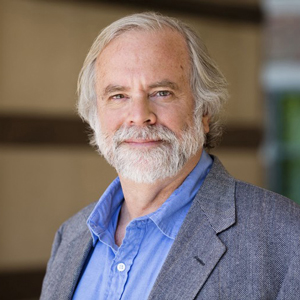
Art Kramer

Art Kramer
Director of the Center for Cognitive & Brain Health
Art Kramer is Professor of Psychology and Director of the Center for Cognitive & Brain Health at Northeastern University. He previously served as Senior Vice Provost for Research and Graduate Education at Northeastern University. He also previously served as the Director of the Beckman Institute for Advanced Science & Technology and the Swanlund Chair and Professor of Psychology and Neuroscience at the University of Illinois.
He received his Ph.D. in Cognitive/Experimental Psychology from the University of Illinois. Professor Kramer’s research projects include topics in Aging, Cognitive Psychology, Cognitive Neuroscience, and Human Factors.
A major focus of his labs recent research is the understanding and enhancement of cognitive and neural plasticity across the lifespan. He is a former Associate Editor of Perception and Psychophysics and is currently a member of six editorial boards. Professor Kramer is also a fellow of the American Psychological Association, American Psychological Society, a former member of the executive committee of the International Society of Attention and Performance, and a recipient of a NIH Ten Year MERIT Award.
He has recently served on the President’s Council of Advisors on Science & Technology (PCAST), the National Academy of Medicine’s (NAM) committee on Cognitive Aging, the Chair of the National Academy of Sciences (NAS) workshop on Understanding Pathways to Successful Aging: Behavioral and Social Factors Related to Alzheimer’s Disease, the Global Council on Brain Health, and a multitude of other national and international committees. Professor Kramer’s research has been featured in a long list of print, radio and electronic media including the New York Times, Wall Street Journal, Washington Post, Huffington Post, Chicago Tribune, CBS Evening News, Today Show, National Public Radio and Saturday Night Live.
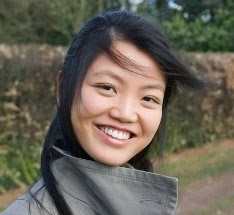
Psyche Loui

Psyche Loui
Assistant Professor of Creativity and Creative Practice, College of Arts, Media, and Design
Dr. Psyche Loui is Assistant Professor of Creativity and Creative Practice in the Department of Music at Northeastern University’s College of Arts, Media and Design. She is also an Assistant Professor in Wesleyan University’s Department of Psychology and Program in Neuroscience and Behavior and the Director of the MIND Lab. Research in the MIND Lab aims to understand the networks of brain structure and function that enable musical processes: auditory and multisensory perception, learning and memory of sound structure, sound production, and the human aesthetic and emotional response to sensory stimuli. Tools for this research include electrophysiology, structural and functional neuroimaging, noninvasive brain stimulation, and psychophysical and cognitive experiments.For her research on music and the brain, Loui has been interviewed by the Associated Press, CNN, WNYC, the Boston Globe, BBC Radio 4, NBC news and CBS radio, and the Scientist magazine.
Loui graduated the University of California, Berkeley with her PhD in Psychology (Specialization: Cognition, Brain and Behavior) and attended Duke University as an undergraduate graduating with degrees in Psychology and Music and a certificate in Neuroscience. She has since held faculty positions in Psychology, Neuroscience, and Integrative Sciences at Wesleyan University, and in Neurology at the Beth Israel Deaconess Medical Center and Harvard Medical School.
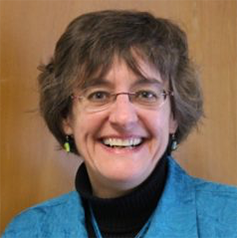
Karen Quigley

Karen Quigley
Research Associate Professor of Psychology
Co-director of the Interdisciplinary Affective Science Laboratory (IASL)
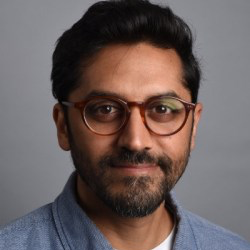
Ajay Satpute

Ajay Satpute
Assistant Professor of Psychology
Professor Ajay Satpute is director of the Affect and Brain Science (ABS) lab. Research in his lab focuses on two main areas. The first area examines the neural basis of affect including pleasure and pain, emotion (e.g. fear), and interactions between affect/emotion with cognition. Current research questions include: Does language shape emotional experience? Do fear of heights, spiders, and social situations share a core fear system or is fear distributed? Can we improve predictions of people’s emotional responses using a value-based decision making model? And how do brain stem nuclei play a role in affect and emotion? The second area examines large-scale computational architectures of the brain with the goal that it will advance theory and research in affective neuroscience. Current projects include using meta-analysis across multiple psychological domains (i.e. emotion, working memory, social cognition, etc.), examining changes in network architecture over time, and predictive coding models of neural computation. The lab addresses these questions by collecting behavioral and brain imaging (e.g. MRI) data, examining variation across participants (e.g. trait anxiety, cross-cultural variation), and implementing a variety of analytical techniques including computational modeling and machine learning. The ABS lab maintains strong collaborative ties with several other psychology, neuroscience, engineering, and computer science labs at Northeastern University.
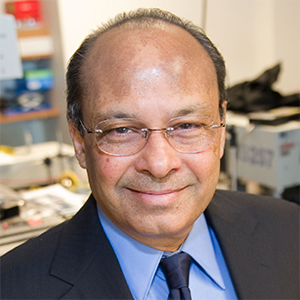
Srinivas Sridhar

Srinivas Sridhar
University Distinguished Professor of Physics, Bioengineering, and Chemical Engineering
Srinivas Sridhar is University Distinguished Professor of Physics at Northeastern University, and Lecturer on Radiation Oncology, Harvard Medical School. He is the Director and Principal Investigator of several multi-M$ national programs: “Nanomedicine Academy” funded by the National Science Foundation; and “CaNCURE: Cancer Nanomedicine Coops for Undergraduate Research and Education” funded by the National Cancer Institute. He is the founding director of the Electronic Materials Research Institute, an interdisciplinary center with research and education thrusts in nanomedicine and nanomaterials. From 2004 to 2008 he served as Vice Provost for Research at Northeastern University, overseeing the University’s research portfolio. An elected Fellow of the American Physical Society, Sridhar’s current areas of research are nanomedicine and nanophotonics. His paper on flat lens imaging published in Nature in 2003 was selected by the journal Science as among the Breakthroughs of the Year. He has published more than 200 articles on his work in nanomedicine, neurotechnology, nanomaterials, quantum chaos, superconductivity and collective excitations in materials. His research projects in nanomedicine and neurotechnology are funded by the NSF, NIH, DOD and foundations.
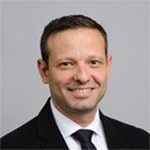
Eugene Tunik

Eugene Tunik
Associate Professor of Physical Therapy, Movement and Rehabilitation Sciences, Associate Dean for Research
Gene Tunik, PhD Rutgers University, currently Associate Professor of Physical Therapy, Movement and Rehabilitation Sciences and Associate Dean for Research; Motor control, motor learning, neurorehabilitation, brain reorganization, brain imaging, noninvasive brain stimulation.

Susan Whitfield-Gabrieli

Susan Whitfield-Gabrieli
Director, Northeastern University Biomedical Imaging Center
Susan Whitfield-Gabrieli is a Director of the NUBIC and a Professor in the Department of Psychology. The primary mission of her PEN Lab is to understand the brain basis of psychiatric disorders and to promote translation of this knowledge into clinical practice. Towards this end, she employs multimodal neuroimaging techniques to investigate the pathophysiology of psychiatric and neurodevelopmental disorders such as schizophrenia, depression, bipolar disorder, ADHD, autism, and dyslexia. Her goals are to discover biomarkers for improved diagnosis, early detection (potentiating early intervention and possibly prevention), prediction of therapeutic response (targeted towards precision medicine), and development of novel therapeutic techniques (e.g., real-time fMRI neurofeedback) with the hope of improving (or augmenting) currently available treatments. A secondary goal of her research is to develop functional imaging analysis tools to share with clinicians and the neuroimaging community at large.
Associate Investigators

Maiya Geddes

Maiya Geddes
Faculty at Harvard Medical School
Dr. Maiya Geddes obtained her M.D. at the University of British Columbia, before completing a residency in adult Neurology at McGill University. She completed a postdoctoral research fellowship at MIT supported by the Canadian Institutes of Health Research and a clinical fellowship in behavioral neurology and neuropsychiatry at the Centre for Brain, Mind Medicine at Harvard Medical School. The focus of Maiya’s research is on understanding the basic neuroscience of human motivation and translating this knowledge to interventions for loss of motivation in a spectrum of neurological and neuropsychiatric patient populations.
